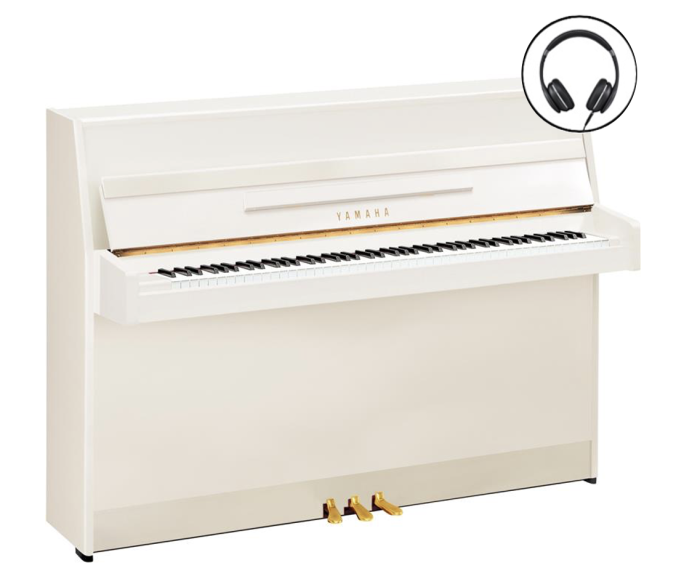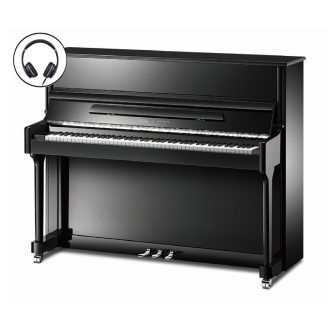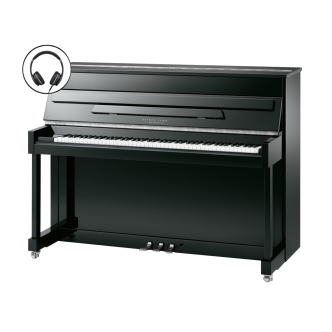Yamaha Smart Pianist app
The Yamaha SILENT pianos are equipped with Bluetooth MIDI that allows you to connect to a smart device. The Smart Pianist app can be downloaded for free and offers a user-friendly, graphical interface and many additional features for smooth use of your instrument.
Articulation Sensor System.
Both the Yamaha Silent and TransAcoustic pianos feature the new Articulation Sensor System, which accurately interprets how real pianos respond and will simulate real piano sounds very accurately and faithfully via algorithms. The sensors are also non-contact, so they have no impact whatsoever on the instrument's playing feel. The grand pianos also feature non-contact sensors on the hammers, translating key movements even more accurately into the piano sounds.
Grand Expression Modeling
Thanks to this new technology, the impact of the pianist's playing technique on the sound reproduction is simulated, both Silent and in TransAcoustic mode. Similar to an acoustic piano, the intensity and speed of the touch provides limitless sound variation, adding an extra dimension to the musical experience.
Virtual Resonance Modelling (VRM)
Thanks to Yamaha's groundbreaking Virtual Resonance Modelling technology, the sound and resonance of a real grand piano is recreated in a unique way, when playing both Silent and TransAcoustic pianos. This takes into account all of the interactions that take place within the instrument such as the vibration of the strings, the sound box the soundboard, sounds from dampers and pedals.
Yamaha CFX and Bösendorfer Imperial samples
The Yamaha Silent and TransAcoustic pianos feature samples from the world-renowned Yamaha CFX and Bösendorfer Imperial concert grand pianos. Bösendorfer is a famous Viennese piano manufacturer, founded in 1828, which became the property of Yamaha. The Yamaha CFX is characterized by a bright and expressive sound, while the Bösendorfer Imperial has a more charming and warm timbre. All 88 keys were sampled very accurately, which makes the harmonious nuances of the instruments stand out very well.
Binaural sampling - Realistic sound experience via headphones
Via Yamaha's Binaural Sampling technology, the sound of the piano is sampled using specialized microphones attached to the pianist's ear. This captures all the nuances distinguished by the human ear. Thanks to this technology, a three-dimensional sound is produced, and it seems as if the sound is actually coming from the piano case, when you play with headphones. Binaural Sampling thus ensures an optimal musical experience when using headphones.





